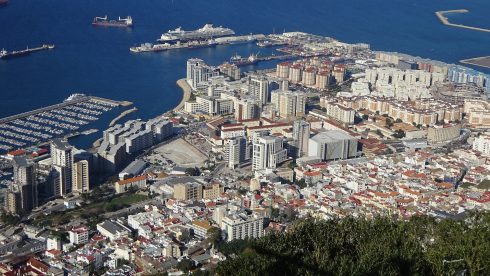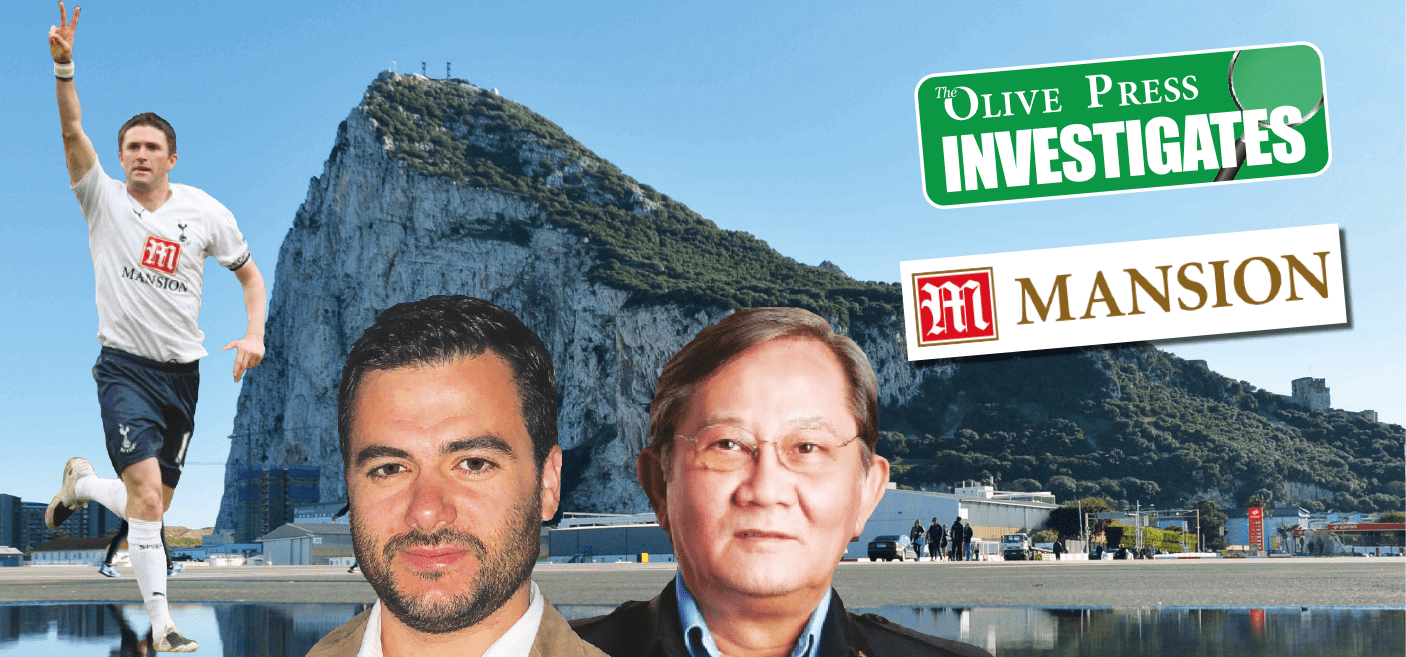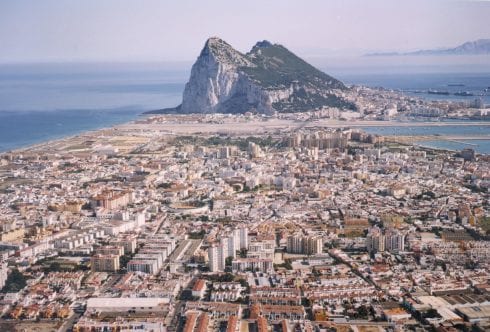ONCE upon a time, Mansion was a well-known gaming company which had its name emblazoned across the chests of Premier League football players.
It rode the wave of Gibraltar’s gaming boom in the late 2000s to set up shop on the Rock and offer online casino gambling to dozens of countries around the world.
Today, the Asian gaming house has all-but vanished, amid a string of bad publicity and run-ins with regulators.
Save for one exception: an ongoing litigation claim in the Supreme Court of Gibraltar between Mansion and its ex-CEO.

The now-defunct betting company is seeking £5 million from Karel Manasco, 44, for allegedly authorising fraudulent payments with company money to himself.
Yet when Manasco tried to launch his defence, the judge cast a privacy order over proceedings and then dismissed his counterclaim.
This was to protect the claimants from what the court feared would result in a ‘seriously damaging media feeding frenzy’.
Which is not surprising, considering its ex-CEO described Mansion as ‘essentially a criminal organisation that made profits by trading in and defrauding countries where online gambling was illegal’.
Now, for the first time, the Olive Press can reveal the details of those allegations which the court feared would create a ‘media feeding frenzy’, based on court documents seen by this newspaper.
But first we must cast our minds back to the heady days of the late 2000s, when gaming companies were flocking to the Rock and Brexit was only just a twinkle in Nigel Farage’s eye.
A favourable tax and regulatory environment attracted big names such as 888 Holdings, William Hill, PartyGaming (later part of Entain), and, of course, Mansion.

The online gaming industry soon became one of Gibraltar’s largest economic contributors, rising to around 28% of its GDP, per government figures, which it maintains to this day.
Gaming accounts for around 3,700 jobs – over 10% of all registered employment, according to the Gibraltar Chamber of Commerce – as well as contributing indirectly through related services such as IT, finance, and hospitality.
But the golden age of gaming wasn’t to last.
In what became known in gaming circles as ‘Black Friday’, the US government cracked down on online offshore gaming in 2011 amid claims some companies were operating a Ponzi scheme by misusing players’ funds.

Just the year before, France had also outlawed unregulated online offshore gaming, dealing a blow to the bottom line of many companies.
For Mansion bosses, the writing was on the wall.
France represented 15% of its overall revenue, according to Manasco, and it looked like just the first domino to fall among the company’s most important markets.
Over a series of hurried meetings attended by Mansion’s ultimate beneficial owner, Indonesian businessman Putera Sampoerna, and his most trusted executives (whom the Olive Press is declining to name) in Singapore between 2011 and 2012, a plan was hatched to bypass this slow death-by-regulation.

It was here that Project Next was born.
Despite being buried in mounds of complex documents and corporate structures, the plan was quite simple.
Mansion allegedly set up a new gaming platform that would continue to operate in countries where Mansion was forbidden to act, but untraceable to Mansion and staffed by Mansion employees.
Profits from this new ‘grey area’ platform would ultimately be channelled to the Sampoerna family.

The project was to be tested out on the French market – where offshore online gaming was now illegal – in what board meeting notes called the ‘proactive approach’.
From the outside, a new Curacao-registered gaming company called Casino Midas entered the French market in 2012 and began to operate without a licence.
Casino Midas traded profitably in France for a couple of years, despite garnering the attention of the French gambling regulator, who began firing off warning letters.
Eventually the heat got too much for the ‘cut-out’ frontman hired to act as the owner of the company, and in 2015 he threatened to expose the company’s true ownership if French authorities pursued him.
READ MORE: Exclusive: Gibraltar is about to smash past the 40,000 population barrier – but can it cope?
Meanwhile, around the same time as Casino Midas was incorporated in the Caribbean, Mansion employees in Gibraltar were obliged to resign from their roles and take up positions at newly-created ‘consultancy’ companies, according to court documents.
A key company was Violet Star Group Ltd, formed by the notorious Panamanian law firm Mossack Fonseca, which earned its infamy from being the central player in the Panama Papers scandal.
It was set up along with two other companies, Apollo Online Consultancy Ltd and Hermes Online Consultancy Ltd in Israel, that, on the surface, had nothing to do with Mansion.
But these companies were run by ‘ex’ Mansion employees that provided ‘consultancy services’ to Casino Midas, which was part of an illegal structure that by then had expanded to the UK and Spain.
It would further expand to Austria, Germany, Netherlands, Belgium, Denmark, Italy, and other jurisdictions around the world.

Casino Midas in turn kicked its ill-gotten profits back through a series of middlemen, which were then paid out to Sampoerna in the form of dividends.
None of it ever returned to Mansion, thus completing the deniability.
When Mansion feared discovery of its illegal Casino Midas operation, the entire structure was shut down and the employees returned to their posts.
It was, however, far from the end of the illegal behaviour, according to Manasco’s defence documents.
The company went on to under-report profits in Germany and Austria for tax evasion purposes, and employed similar schemes to welch on tax debts owed to the Israeli government.
While these allegations were shielded from being proven in a court of law, the Olive Press has seen the underlying evidence.
And none of it would come as a surprise to anyone who has been following the Mansion case over the years.
The company has been the subject of various stories in the British press, including the Telegraph writing about its opaque ownership in 2019 (hint: it’s Putera Sampoerna).
The UK gambling regulator reportedly opened an investigation into Mansion in 2020 while discretely advising Bournemouth Football Club, whose shirt bore the brand logo, to ditch their sponsorship contract.
Mansion finally shut down and closed its doors in 2023 for ‘ordinary commercial reasons’, according to Gibraltar’s gaming regulator.
The tale of Mansion is merely one example of the aggressive, wild-west culture that permeated the offshore online gaming sector in the period.
Entain, Gibraltar’s largest employer, was forced to cough up a staggering £600 million by the UK gambling regulator in 2023 for similar historical misdeeds.
Today, the gaming sector claims to run a tighter ship, and the dodgy companies have been regulated out of existence.







